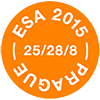|
RN coordinator: Isabella Crespi, University of Macerata, Italy Isabella.crespi(at)unimc.it
The ESA Research Network 13 ‘Sociology of Families and Intimate Lives’ is delighted to forward the announcement of the 12th European Sociological Association Conference, titled “Differences, inequalities and sociological imagination”, which will be held in Prague from August 25th to 28th 2015. Our RN invites submissions of papers on current new findings in family research and current new theoretical and methodological approaches to explore family and intimate lives. Taking up the conference theme, scholars are especially invited to explore whether and how their family studies relate to aspects of social inequalities (e.g. effects of poverty on families and children, family ties as instruments for compensation social deprivation – or for reproducing social inequality, children as a poverty risk) and also whether and how family relationships are generative (allow exchange of resources and impact on quality of relationships…). In particular in what ways findings need to be differentiated (e.g. due to differences by social class, ethnic background, birth cohort, gender, generations etc.), as well as whether and how sociological imagination can be a helpful tool for the interpretation of results. Even if linkage to the main conference theme is not a precondition for submissions, we strongly suggest considering the proposed topic. Further we ask to authors to specify in the abstract theoretical background, methodology and research aspects, main findings because these will be used for selection process. |
|
The RN13 committee would like to propose a few sub-topics of interest that may help develop the main theme. They include but are not restricted to:
1_Joint session with RN33 Sociology of Women and gender studies: Joint session title “Family dynamics, differences/convergences in gender roles; new inequalities and new opportunities” This session is specifically focussed on the impact of changing gender roles on family life and parenthood. Are converging gender roles a new opportunity/challenge (the best) for families and children? Does the gender convergence mean equality in the home? What do children think about changing fathers and mothers?
2_Joint session with RN11 Sociology of Emotions The emotional logic of family inequalities There has been a longer concern for emotions in family life within the sociology of emotions. For example, there is a strong interest in emotions motivating everyday family practices, gender dynamics, the social dynamics of intimacy and love, as well as the intensity involved in parenting. At the same time, recent sociological debates about family life have highlighted how newly diversified family relations continue to be characterised by inequalities, not least those of gender, age, social class and ethnicity. Globalization may have an additional impact on this. Exploring the emotional dimensions of such familial inequalities will contribute in important ways to our understanding of the pressures on families generated by inequalities in the wider society, as well as by the normative expectations attached to family relations and positions. Some issues could be: the emotional dynamics of inequality in everyday family practices; processes of family formation and reconfiguration, including as a consequence of migration; and in the significance of family position as it affects experience and status in other institutional contexts, such as employment, education, healthcare, politics or collective culture.
3_Joint session with RN34 Sociology of Religion Families and religions in contemporary society: different traditions and new relations Intimate living forms (families, partnership, etc.) are undergoing epochal changes under the influence of different variables, among which are global migration and scientific advancements. Families, men and women as well as religious institutions are constantly challenged to foster and adapt to modernity while preserving their own faith tradition and identities. The education of the new generation, the pluralization of living forms, interfaith marriages and the changing roles of mothers and fathers within the modern family are some of the issues facing those who belong to traditional religions. The scope of this joint session is to examine commonalities and differences between different religious traditions and conceptions of the modern family. Some questions arise from this issue: What is changing and what are the ever present features which make the family and religions changes a challenge for the contemporary society? How do global migrations impact the boundaries between faith traditions within mixed marriages? In what ways do biotechnological developments challenge the idea of family and partnership? What is the role of education and values transmission of religious aspects?
|
|
Notes for authors Authors are invited to submit their abstract either to the general session or any specific session. Please submit only to one session. After abstract evaluation, coordinators will have the chance to transfer papers between sessions where applicable. Abstracts should not exceed 250 words. Each paper session will have the duration of 1.5 hours. Normally sessions will include 4 papers. Abstracts must be submitted online to the submission platform, see below. Abstracts sent by email cannot be accepted. Abstracts will be peer-reviewed and selected for presentation by the Research Network; the letter of notification will be sent by the conference software system in early April 2015.
Abstract submission deadline (extended): 15th February 2015 Abstract submission platform: www.esa12thconference.eu |
|
If you have further questions on the conference, please visit the conference website. For further information on the Research Network, please visit www.europeansociology.org. |






